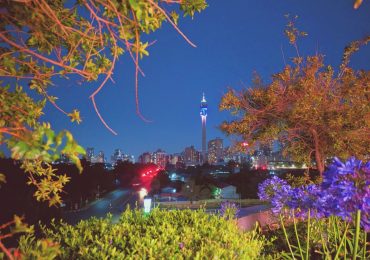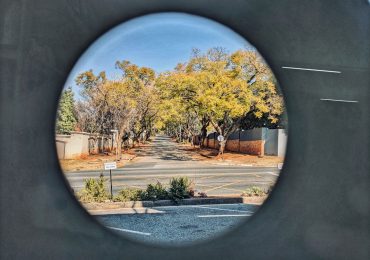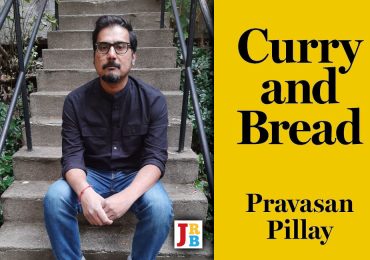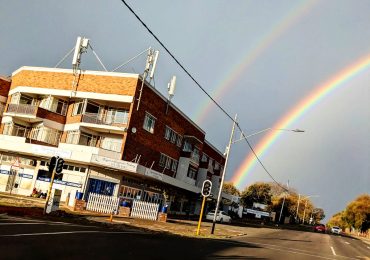Sifiso Mzobe and Shubnum Khan were in conversation with Sihle Mthembu at the Abantu Book Festival in Soweto last weekend.
The discussion ranged from writer’s block—or the lack thereof—the challenges that come with writing characters from outside your community, and the need for more literary festivals like Abantu, which recognise and celebrate writers of colour.
Both authors also revealed details about their next books.
Mzobe’s first novel, Young Blood, was published in 2011, and won the Herman Charles Bosman Award, the Sunday Times Literary Awards’ Fiction Prize, the South African Literary Award for a first-time author and the Wole Soyinka Prize for Literature in Africa.
Seven years is a long time to wait for the follow-up to such an acclaimed debut, but Mzobe told the audience they wouldn’t have to hold their breath for much longer.
‘I just want to tell people that they shouldn’t worry, the next book will be coming out next year, as well as a collection of short stories,’ he revealed, to enthusiastic applause.
.@sifisomzobe reveals that he has a novel and a book of short stories coming out next year, gets applause from the audience? @Abantu_ #AbantuBookFest pic.twitter.com/ErNCHMWqTG
— Jennifer Malec (@projectjennifer) December 9, 2017
In 2014 Mzobe was named on the Africa39 List, a project recognising the thirty-nine most promising authors under the age of forty from Sub-Saharan Africa and the diaspora.
‘The accolades were such a surprise to me, because I was just taking a step in the dark,’ Mzobe said. ‘I was just writing to the best of my ability, but then you get that sense when you start getting acclaimed that you have to try to better yourself. So I realised I was hurrying my writing. I like to take my time. I may have written Young Blood in a short period of time, but I thought about it for a long time.
‘So I told myself to take it as it goes, and it helps that I do other work as well, to be away from writing for a bit. But sometimes you find that because you have to pay the bills you are away from writing for a bit too long … you can’t sustain the process.
‘But the thought is always there in your head that you have to better yourself. So I’m not worried about how much time it takes me to write. People look at me like, “Oh shame! Is it writer’s block?” And I’m like no, relax people, I’m writing, it’s just that my process is a bit long.
‘The book is almost there though,’ he added.
Khan’s debut novel, Onion Tears, was published in 2011, and was shortlisted for the University of Johannesburg Prize for debut fiction and the Penguin Prize for African Writing. It has also been translated into Italian as Le radici altrove, and despite the book’s very local setting and subject—it tells the story of three generations of Indian Muslim women living in South Africa—Khan says she has received messages from readers all over the world.
'The more specific you get in a story, the more universal it becomes. People will always recognise themselves in something that is true.' – @ShubnumKhan #Abantubookfest @Abantu_ pic.twitter.com/nzDILyUQUc
— Jennifer Malec (@projectjennifer) December 9, 2017
‘The more specific you make the story, the more universal it becomes,’ she said. ‘I’m writing about Indian Muslim women, and I’ve have an old white lady in Canada messaging me saying “this is my family”, I’ve had an Italian person say, “this is my family”.
‘People will always recognise themselves in something that is true about human nature. But the way I see it, as a writer you’re pulling threads and you’re making a carpet, and it’s your own carpet. It belongs to you.’
Khan is currently working on her second novel, and she said she is trying to challenge herself to write the unfamiliar.
‘I didn’t want to be stereotyped as someone who writes about Indian Muslim women in South Africa,’ she said. ‘The first book was very strongly about that, so I’ve tried to do something different. And I don’t know if it really works, but I’m trying.
‘For me it was just a personal challenge to go beyond my own community, to see if I can do it. You are expected to write a certain way if you are a certain colour. But I wanted to do something else. There are still Indian women in my new book, but specifically I’ve tried to stay away from themes of Indian women in the Struggle, at least in this book.
‘They say your first novel is always autobiographical in some way, and you get it out of your system and then you work on something that you want to explore. I’m forcing myself to go out of what I know, what I’m comfortable with, and I am struggling a lot. I’m trying to write from a white person’s perspective, and there’s so much pressure and you have to handle it so well, and then I just end up saying, “I’m going to write about an Indian person, because that’s what I know.” And then they all end up becoming Indian. And then at one point I suddenly thought, there’s too many Muslims in this book, what am I doing? But this is what I know, it’s what I can express with truth. So it’s difficult.’
Mzobe, on the other hand, says he embraces the challenges of writing.
‘I look at writing as a problem solving exercise,’ he said. ‘So I think I’ll always write different books. After Young Blood people were saying, even my publisher was saying, just write a sequel to Young Blood, continue with what is happening here. But I don’t want that.
‘When I’m old I want to have an eclectic body of work. I want to write a children’s book. The book after the one that I’m working on will definitely be speculative fiction. So I embrace those challenges.’
Mzobe revealed something of Durban December, his novel due out next year.
‘It started off as purely crime fiction; I wanted to do something different, I wanted to challenge myself,’ he said. ‘So I decided to write about cops, right? The first book was about car thieves, this one is centred around cops.
‘The main character is about thirty years old, and he has a young family, and he’s recently been made a detective. He’s sent to a crime scene, where two bodies are lying on the railway tracks in D Section, in the wee hours of the morning. When he gets there both bodies are covered in plastic sheets. He looks at the first body and finds it has been shot through the temple. He moves his torchlight down to the second body, and he finds that it has no head. So the book is about finding the identity of the body with no head.
‘But then, strangely enough, within that I found myself writing a novella about the eighties in the townships during those violent times. So the book is multilayered in that sense.’
Khan’s next novel is the story of a young girl who moves from an inland farm to the ocean.
‘It’s set in Durban. The girl and her father move into an old house and she finds all these strange characters living in the rooms and she starts finding out why they’re living there and how they came to be. The story also goes about one hundred years back about how the house came to be here and why it’s been abandoned.
‘But ultimately the basis of the story for me was to find out what happens to those things forgotten, the fate of things forgotten; things that have been loved once and are then lost, and how you deal with that. The house itself, but also the people in the house, how they’ve been abandoned and what happens to them.’
Towards the end of the session, a member of the audience said he would like to see authors at public events more often, asking ‘Where are you hiding?’
‘We’re trying, you know?’ Mzobe replied, although he did concede the point: ‘I’ll give you an example. With my book, over a six-month period it sells X amount of copies, I won’t say how many, but not satisfactory enough for me. But when I go on Facebook and advertise that I am selling my book, it maybe triples that number in a month. So, yes, we should be out there, we need to show ourselves more.
‘But we also need literary festivals that incorporate everyone, so that kids know that there are writers like us and they can aspire to that as well.
‘People like Thando [Mgqolozana, Abantu Book Festival director], with what they are doing now … this is unlike any other literary festival that I’ve ever attended in South Africa.’
'This is unlike any other literary festival I've attended in South Africa' – @sifisomzobe on @Abantu_ #Abantubookfest pic.twitter.com/SUI65USoA1
— Jennifer Malec (@projectjennifer) December 9, 2017
.@ShubnumKhan reading from her work @Abantu_ #Abantubookfest pic.twitter.com/ChDJ1b7vtm
— Jennifer Malec (@projectjennifer) December 9, 2017
Hilarious moment during @sifisomzobe's reading from his novel Young Blood when he surprises himself with his own writing – 'what?!' – 'I haven't read it since it was published …' ? @Abantu_ #Abantubookfest pic.twitter.com/9ulSBF9782
— Jennifer Malec (@projectjennifer) December 9, 2017
.@ShubnumKhan says she hates reading her published books, but at the same time she wouldn't change anything, 'I don't like living with regrets.' @Abantu_ #Abantubookfest pic.twitter.com/SrsZpsyeLt
— Jennifer Malec (@projectjennifer) December 9, 2017
'When the reader sees the published book, it looks perfect. But while you're writing … the characters take over.' – @sifisomzobe #Abantubookfest pic.twitter.com/mTGcG7bCTd
— Jennifer Malec (@projectjennifer) December 9, 2017





